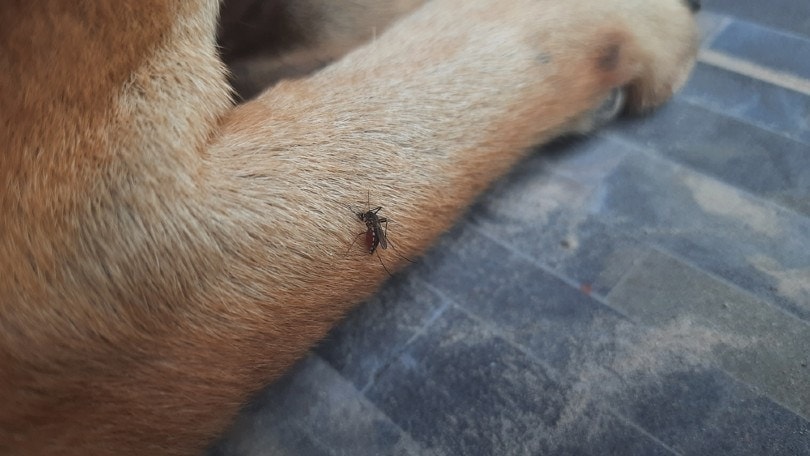How Long Do Bichon Frisés Live? Average Lifespan, Data & Care

Updated on
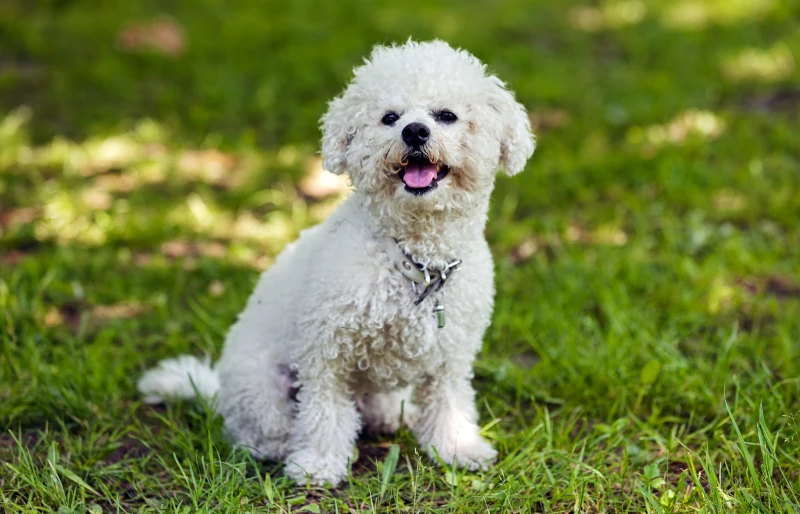
Click to Skip Ahead
The Bichon Frisé, or Canary Island Lap Dog, is one of the most popular dog breeds today, ranking 47th on AKC’s list 1 of most popular dog breeds in the country.
Their fluffy white coat and large brown eyes make them absolutely adorable. These pint-sized pups make excellent companion pets and will shower you with unconditional love and affection. They’re also very easy to train and love to be around people and other pets.
If you own a Bichon Frisé or are looking to get one, it’s only natural to be curious about how long your furry friend will keep you company. Bichon Frisés can live for up to 16 years. The average lifespan is much lower, but these pups are generally healthy and enjoy a happy life.
What’s the Average Lifespan of a Bichon Frisé?
Toy dogs, like the Bichon Frisé, typically live for 14 to 16 years. These pups live, on average, for about 12 years and seven months. This period is significantly longer than larger dogs that live on average for between 7 and 8 years.
We can attribute the considerable life expectancy of these adorable pups to their small stature. Large dogs usually have higher metabolisms and require more energy to survive. Their physiological processes put a lot of strain on their bodies, shortening their lifespans.
Small dogs, on the other hand, have lengthier life spans because they have lower metabolisms and energy requirements than their larger counterparts.
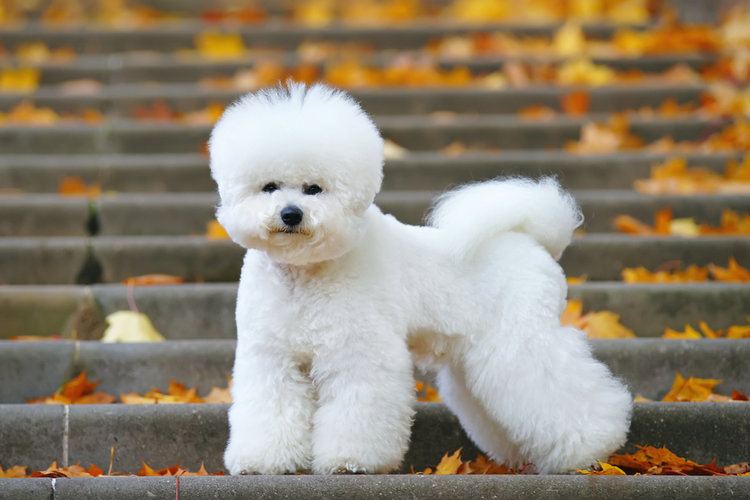
Why Do Some Bichon Frisés Live Longer Than Others?
It’s no secret that some dogs live longer than others. Here are a couple of reasons why this is so:
1. Nutrition
A balanced and nutritious diet is imperative to the longevity of your dog.
A Bichon Frisé that takes proper meals lives healthier and longer lives than those that don’t. A diet rich in raw meats, fish, vegetables, and even fruit will likely prolong your dog’s life.
Apart from feeding your pup a healthy diet, it’s also important to check the amount of food you feed it. A staggering 50% of dogs in the US are obese from overfeeding. So, while you want a healthy dog, it’s important to feed your animal only the required amount of food to keep obesity at bay. Obesity makes your dog more prone to complications like diabetes, cancer, osteoarthritis, and hypertension.
Also, avoid feeding your dogs too much processed food. Although tasty, these foods contain additives, excessive salt, high-fat content, and choking hazards that are detrimental to your dog’s health. Instead, focus on a balanced and nutritious diet consisting of wholesome, home-cooked meals.
2. Environment and Conditions
A Bichon Frisés that lives in clean, safe, clean, and comfortable environments tend to be healthier and outlive their counterparts living in dreary, unsafe conditions. They also need readily available water, fresh air, and shelter to thrive and live longer.
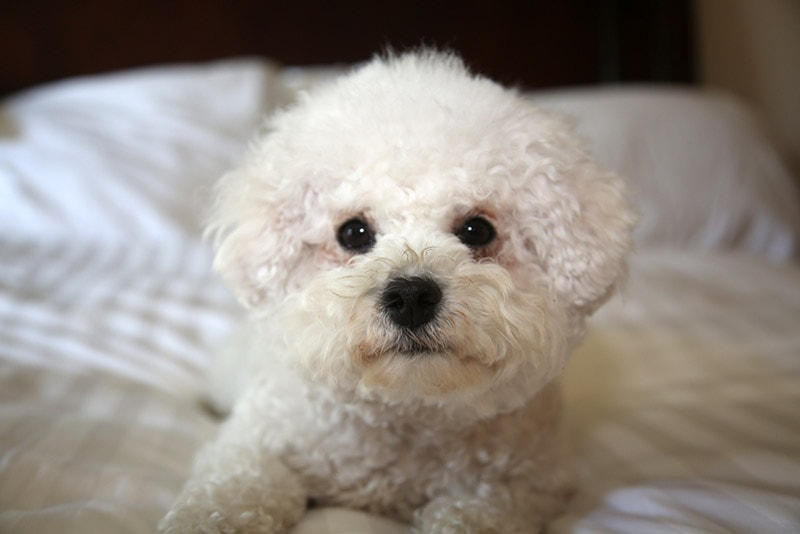
3. Enclosure Size, Living Quarters and Housing
Although tiny, these adorable pups need adequate space to live their longest.
Keeping your Bichon Frisé in a cramped space could stress them and make them more predisposed to certain complications like joint stiffness, arthritis, and bacterial encephalitis. A lack of space also makes it difficult for these pups to engage in physical activity crucial for their health and longevity.
4. Size
As mentioned earlier, larger dogs typically have a shorter lifespan than smaller ones. The large bodies of above-average-sized Bichon Frisés require a lot of energy to maintain. This puts strain on their internal organs and muscles, reducing their life spans. They also have a faster growth rate, accelerating their journey to the finish line.
Large Frisés are also more likely to suffer from conditions like elbow dysplasia that compromise their quality of life and shorten their lifespans. They also require a lot of physical exercise to keep them from being obese and suffering from health complications like hypertension and diabetes.
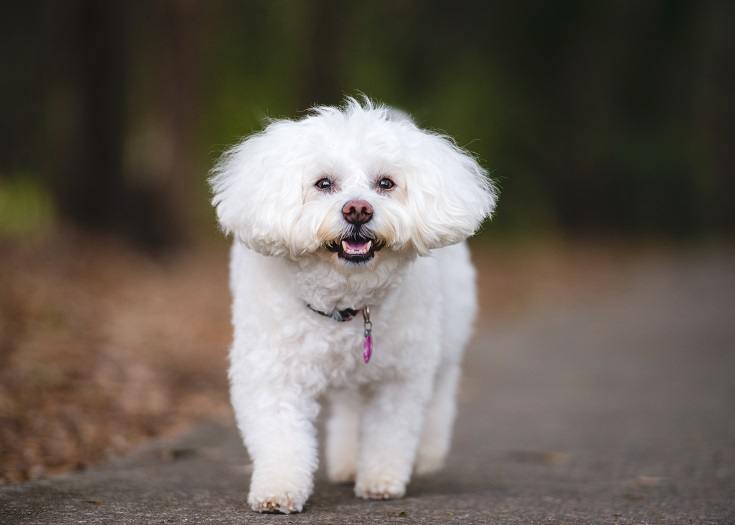
5. Sex
The sex of these dogs doesn’t play a major part in determining their life spans. Both male and female Bichon Frisés can live long lives with proper care and a healthy diet. However, there are certain diseases that affect specifically male or female Frisés. Cryptorchidism, for instance, only affects males, while mucometra only affects females.
6. Genes
Some Bichon Frisés may inherit longevity genes from their parents, making them live longer than other dogs from the same species. These genes may give the dogs advantages like improved immune systems, better cellular regeneration, and better overall health.
On the other side of the spectrum are pups with defective genes. These dogs are more inclined to get certain diseases like heart conditions and diabetes. Treatment and medication can only do so much to prevent the death of genetically disadvantaged canines.
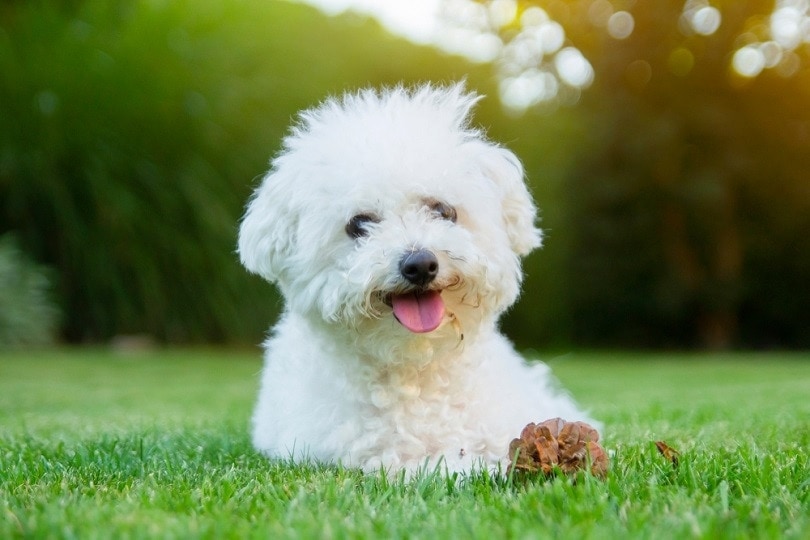
7. Breeding History
Thoroughbred Bichon Frisés are typically healthier than their mixed-breed counterparts. The former has strong genes that promote health and longevity. Mixed-breed Bichon Frisés may pass genetic diseases to their offspring, shortening their lifespans.
8. Healthcare
Proper healthcare is necessary for your Bichon Frisé to live a long, happy life. Complications like luxating patellas, diabetes, and other such conditions can shorten your dog’s lifespan. It’s important to schedule regular veterinarian visits to guarantee your pup’s longevity. Doing so will help check for any underlying conditions and address them at their early stages before they spiral out of control.

The 4 Stages of a Bichon Frisé’s Life
- Puppyhood (0 to 6 months): The first half-year of a Bichon Frisé’s life is puppyhood, where they undergo rapid growth and development as they learn and experience the world around them.
- Adolescence (6 to 18 months): The adolescent months of these pups are characterized by an enhanced sense of curiosity, independence, and better reception to training. They also achieve sexual maturity during this period.
- Adulthood (1 to 7 years): These dogs are at their most active stage and get into all sorts of trouble. They require proper health care and a good diet for optimum health.
- Senior years (7 years to 16 years): At around 7 years, these canines start to show signs of aging. Past that, their level of activity starts gradually reducing until their eventual demise.
How to Tell Your Bichon Frisés Age
There’s no sure way to tell your dog’s age; however, there are a few indicators of how old they might be. For example, teeth will begin to show once the dog reaches one month. You could also look for signs of aging, like reduced activity and body lumps in senior dogs.
Closing Thoughts
Taking good care of your Bichon Frisé will ensure it lives a long and happy life. Remember to feed it a rich and nutritious diet and be consistent with your veterinarian visits. Also, address any signs of disease the moment you notice them. Even minor signs like lethargy and shedding fur could indicate something more serious and possibly life-threatening.
- Related read: 10 Best Shampoo for a Bichon Frise – Reviews & Top Picks
Featured Image Credit: Vladimir Nenezic, Shutterstock






